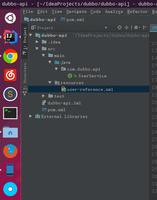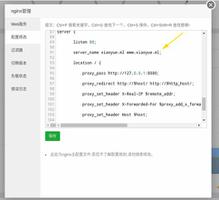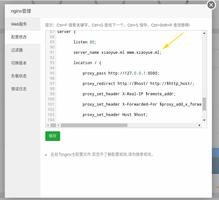[dubbo源码之]1.服务提供方如何发布服务

- Java API:
// 1. 创建ServiceConfig实例
ServiceConfig<igreetingservice> serviceConfig = new ServiceConfig<>();
// 2. 设置应用程序配置
serviceConfig.setApplication(new ApplicationConfig("deep-in-dubbo-first-provider"));
// 3. 设置注册中心
RegistryConfig registryConfig = new RegistryConfig("zookeeper://127.0.0.1:2181/");
serviceConfig.setRegistry(registryConfig);
// 4. 设置接口和实现类
// 5. 设置服务分组和版本
// dubbo中,服务接口+服务分组+服务版本 唯一的确定一个服务,同一个接口可以有不同版本,方便维护升级
serviceConfig.setInterface(IGreetingService.class);
serviceConfig.setRef(new GreetingServiceImpl());
serviceConfig.setVersion("1.0.0");
serviceConfig.setGroup("dubbo-sxzhongf-group");
RpcContext.getContext().setAttachment("age","18");
// 7. 导出服务,启动Netty监听链接请求,并将服务注册到注册中心 serviceConfig.export();
// 8. 挂起线程,避免服务停止
System.out.println("api provider service is started...");
System.in.read();
```
XML
<beans xmlns:xsi="http://www.w3.org/2001/XMLSchema-instance" xmlns:dubbo="http://dubbo.apache.org/schema/dubbo" xmlns="http://www.springframework.org/schema/beans" xsi:schemalocation="http://www.springframework.org/schema/beans http://www.springframework.org/schema/beans/spring-beans-4.3.xsdhttp://dubbo.apache.org/schema/dubbo http://dubbo.apache.org/schema/dubbo/dubbo.xsd">
<!-- provider"s application name, used for tracing dependency relationship -->
<dubbo:application name="first-xml-provider" />
<!-- use multicast registry center to export service -->
<dubbo:registry address="zookeeper://127.0.0.1:2181/" />
<!-- use dubbo protocol to export service on port 20880 -->
<dubbo:protocol name="dubbo" port="20880" />
<!-- service implementation, as same as regular local bean -->
<bean id="demoService" class="com.sxzhongf.deep.in.dubbo.provider.service.impl.GreetingServiceImpl" />
<!-- declare the service interface to be exported -->
<dubbo:service interface="com.sxzhongf.deep.in.dubbo.api.service.IGreetingService" ref="demoService" version="1.0.0" group="dubbo-sxzhongf-group">
<dubbo:method name="sayHello" async="false" timeout="0" retries="3"></dubbo:method>
<dubbo:method name="testGeneric" async="false" timeout="10000" retries="3"></dubbo:method>
</dubbo:service>
</beans>
查看export源码可知,总共有三种服务导出选项:
java public synchronized void export() { //1. 是否导出 if (!shouldExport()) { return; } ... //2.延迟导出 if (shouldDelay()) { DELAY_EXPORT_EXECUTOR.schedule(this::doExport, getDelay(), TimeUnit.MILLISECONDS); } else { //3.立刻导出 doExport(); } }
2.ServiceConfig#doExport
> 此方法主要是根据设置的属性进行合法性检查,主要包含是否已被导出,doExportUrls();
3.doExportUrls
4.ConfigValidationUtils#loadRegistries
> 此方法用来加载所有的服务注册中心对象,在dubbo中,一个service可以被注册到多个注册中心。
>
> 通过doExportUrlsFor1Protocol(protocolConfig, registryURLs);
5.doExportUrlsFor1Protocol
> 在此方法中会将所有的参数封装成org.apache.dubbo.common.URL对象,然后执行具体的服务导出。
具体过程分为:
1.解析MethodConfig配置(单独的方法调用参数设置)
2.泛型调用类型设置
3.拼接URL参数
4.导出具体服务
导出又分为四种范围(
scope):SCOPE_NONE = "none",如果设定为none,表示该服务不导出。
SCOPE_LOCAL = "local" ,如果设定为local,表示该服务导出到本地(injvm--伪协议,实现类为:
org.apache.dubbo.rpc.protocol.injvm.InjvmProtocol)- SCOPE_REMOTE = "remote",如果设定为remote,表示该服务导出到远程。
如果有注册中心,发布到注册中心
如果没有注册中心,则表示服务是直连方式
从
dubbo-2.7.0开始,新增加了WritableMetadataService来存储dubbo 服务的元数据,元数据可以存储在远端配置中心和本地,默认是存储在本地,通过设置:METADATA_KEY = "metadata"DEFAULT_METADATA_STORAGE_TYPE = "local"
REMOTE_METADATA_STORAGE_TYPE = "remote"
/*** @since 2.7.0
* ServiceData Store
*/
WritableMetadataService metadataService = WritableMetadataService.getExtension(url.getParameter(METADATA_KEY, DEFAULT_METADATA_STORAGE_TYPE));
if (metadataService != null) {
metadataService.publishServiceDefinition(url);
}
不设置,导出到本地和远端
最终执行导出的代码如下
// 扩展适配类private static final Protocol protocol = ExtensionLoader.getExtensionLoader(Protocol.class).getAdaptiveExtension();
/**
* A {@link ProxyFactory} implementation that will generate a exported service proxy,the JavassistProxyFactory is its
* default implementation
*/
// 扩展适配类
private static final ProxyFactory PROXY_FACTORY = ExtensionLoader.getExtensionLoader(ProxyFactory.class).getAdaptiveExtension();
...
Invoker<!--?--> invoker = PROXY_FACTORY.getInvoker(ref, (Class) interfaceClass, registryURL.addParameterAndEncoded(EXPORT_KEY, url.toFullString()));
DelegateProviderMetaDataInvoker wrapperInvoker = new DelegateProviderMetaDataInvoker(invoker, this);
Exporter<!--?--> exporter = protocol.export(wrapperInvoker);
exporters.add(exporter);
由于
protocol和PROXY_FACTORY都是扩展适配类,跟踪代码我们可以发现:执行
PROXY_FACTORY.getInvoker的时候实际上首先执行扩展接口ProxyFactory的适配类ProxyFactory$Adaptive的getInvoker方法,根据URL中参数proxy的设置类型选择具体的代理工厂,默认使用的是javassist,,因此又调用了org.apache.dubbo.rpc.proxy.javassist.JavassistProxyFactory#getInvoker来获取代理实现类,代码如下:/*** JavaassistRpcProxyFactory
*/
public class JavassistProxyFactory extends AbstractProxyFactory {
...
@Override
public <t> Invoker<t> getInvoker(T proxy, Class<t> type, URL url) {
// TODO Wrapper cannot handle this scenario correctly: the classname contains "$"
// 这里使用javassist动态代理生成serviceImpl实现类的包装类`Wraaper...`
final Wrapper wrapper = Wrapper.getWrapper(proxy.getClass().getName().indexOf("$") < 0 ? proxy.getClass() : type);
return new AbstractProxyInvoker<t>(proxy, type, url) {
@Override
protected Object doInvoke(T proxy, String methodName,
Class<!--?-->[] parameterTypes,
Object[] arguments) throws Throwable {
return wrapper.invokeMethod(proxy, methodName, parameterTypes, arguments);
}
};
}
...
}
上面代码有2个目的:
inal Wrapper wrapper = Wrapper.getWrapper(...);用来生成具体serviceImpl的包装类,减少反射的性能损耗;return new AbstractProxyInvoker<t>...返回了一个抽象的代理invoker,并且重写了doInvoker方法,重写之后使用包装类中的invokeMethod来调用方法。
经过上述2步,服务提供方就将具体的实现类转换为
Invoker代理。然后,当执行
protocol.export(),实际上也是调用了Protocol$Adaptive#export()方法,同时也分为两种情况- 如果为远程暴露,则执行
RegistryProtocol#export - 如果为本地暴露,则只需
InjvmProtocol#export
由于dubbo的
增强SPI特性支持,injectExtension((T) wrapperClass.getConstructor(type).newInstance(instance));,则在调用之前会一层一层调用,ProtocolFilterWrapper->ProtocolListenerWrapper->QosProtocolWrapper,最后会调用export方法,此方法会将Invoker转换为Exporter对象,在org.apache.dubbo.registry.integration.RegistryProtocol#export方法中,org.apache.dubbo.registry.integration.RegistryProtocol#doLocalExport方法启NettyServer来监听服务,org.apache.dubbo.registry.integration.RegistryProtocol#register将当前的服务注册到注册中心。doLocalExport是如何启动NettyServer呢?private <t> ExporterChangeableWrapper<t> doLocalExport(final Invoker<t> originInvoker, URL providerUrl) {String key = getCacheKey(originInvoker);
return (ExporterChangeableWrapper<t>) bounds.computeIfAbsent(key, s -> {
Invoker<!--?--> invokerDelegate = new InvokerDelegate<>(originInvoker, providerUrl);
return new ExporterChangeableWrapper<>((Exporter<t>) protocol.export(invokerDelegate), originInvoker);
});
}
此时
URL中的protocol类型为默认的dubbo,因此会执行DubboProtocol#export进行转换,如下:@Overridepublic <t> Exporter<t> export(Invoker<t> invoker) throws RpcException {
URL url = invoker.getUrl();
// export service.
String key = serviceKey(url);
// invoker->exporter
DubboExporter<t> exporter = new DubboExporter<t>(invoker, key, exporterMap);
exporterMap.put(key, exporter);
//export an stub service for dispatching event
Boolean isStubSupportEvent = url.getParameter(STUB_EVENT_KEY, DEFAULT_STUB_EVENT);
Boolean isCallbackservice = url.getParameter(IS_CALLBACK_SERVICE, false);
if (isStubSupportEvent && !isCallbackservice) {
String stubServiceMethods = url.getParameter(STUB_EVENT_METHODS_KEY);
if (stubServiceMethods == null || stubServiceMethods.length() == 0) {
if (logger.isWarnEnabled()) {
logger.warn(new IllegalStateException("consumer [" + url.getParameter(INTERFACE_KEY) +
"], has set stubproxy support event ,but no stub methods founded."));
}
} else {
stubServiceMethodsMap.put(url.getServiceKey(), stubServiceMethods);
}
}
//创建server
openServer(url);
//序列化提示
optimizeSerialization(url);
return exporter;
}
可以看到代码执行到
openServer,因为key=getAddress()=ip+port,因此,同一台机器只会开启一个NettyServer.private void openServer(URL url) {// find server.
String key = url.getAddress();
//client can export a service which"s only for server to invoke
boolean isServer = url.getParameter(IS_SERVER_KEY, true);
if (isServer) {
ProtocolServer server = serverMap.get(key);
if (server == null) {
synchronized (this) {
server = serverMap.get(key);
if (server == null) {
serverMap.put(key, createServer(url));
}
}
} else {
// server supports reset, use together with override
server.reset(url);
}
}
}
对于
org.apache.dubbo.remoting.Transporter的适配类选择有三种:MinaTransporter、NettyTransporter、GrizzlyTransporter,关于JavaNIO:Apache Mina、JBoss Netty、Sun Grizzly 框架对比:传送门NettyServer启动之后,回到
org.apache.dubbo.registry.integration.RegistryProtocol#export方法,继续执行将服务注册到注册中心,我们以Zookeeper为例:1.首先查找所有注册中心
final Registry registry = getRegistry(originInvoker);...
protected Registry getRegistry(final Invoker<!--?--> originInvoker) {
URL registryUrl = getRegistryUrl(originInvoker);
return registryFactory.getRegistry(registryUrl);
}
因为
RegistryFactory是一个SPI扩展接口,代码中设置的为zookeeper,因此这里调用的是ZookeeperRegistryFactory,继承自:org.apache.dubbo.registry.support.AbstractRegistryFactory#getRegistry(org.apache.dubbo.common.URL),在此方法中调用了createRegistry,但是ZookeeperRegistryFactory重写了createRegistry,因此具体调用的是ZookeeperRegistryFactory#createRegistry,该方法返回了一个new ZookeeperRegistry(url, zookeeperTransporter)实例对象。2.开始注册,
RegistryProtocol#register方法执行注册动作,首先获取到我们在上一步找到的注册中心ZookeeperRegistry,ZookeeperRegistry执行父类org.apache.dubbo.registry.support.FailbackRegistry#register,在该方法中会调用抽象方法:doRegister,ZookeeperRegistry重写了改方法,则执行ZookeeperRegistry#doRegister,如下:@Overridepublic void doRegister(URL url) {
try {
zkClient.create(toUrlPath(url), url.getParameter(DYNAMIC_KEY, true));
} catch (Throwable e) {
throw new RpcException("Failed to register " + url + " to zookeeper " + getUrl() + ", cause: " + e.getMessage(), e);
}
}
3.
toUrlPath方法会把org.apache.dubbo.common.URL转换格式后存储到zookeeper,如下:dubbo://172.16.44.21:20880/com.sxzhongf.deep.in.dubbo.api.service.IGreetingService?anyhost=true&application=deep-in-dubbo-first-provider&default=true&deprecated=false&dubbo=2.0.2&dynamic=true&generic=false&group=dubbo-sxzhongf-group&interface=com.sxzhongf.deep.in.dubbo.api.service.IGreetingService&methods=sayHello,testGeneric&pid=8480&release=2.7.5&revision=1.0.0&side=provider&timestamp=1582872610313&version=1.0.0-----------------------转换------------------------
/dubbo/com.sxzhongf.deep.in.dubbo.api.service.IGreetingService/providers/dubbo%3A%2F%2F172.16.44.21%3A20880%2Fcom.sxzhongf.deep.in.dubbo.api.service.IGreetingService%3Fanyhost%3Dtrue%26application%3Ddeep-in-dubbo-first-provider%26default%3Dtrue%26deprecated%3Dfalse%26dubbo%3D2.0.2%26dynamic%3Dtrue%26generic%3Dfalse%26group%3Ddubbo-sxzhongf-group%26interface%3Dcom.sxzhongf.deep.in.dubbo.api.service.IGreetingService%26methods%3DsayHello%2CtestGeneric%26pid%3D8480%26release%3D2.7.5%26revision%3D1.0.0%26side%3Dprovider%26timestamp%3D1582872610313%26version%3D1.0.0
转换之后的格式其实就是我们在zookeeper中看到的一样了,不过有几个目录:
- dubbo
- com.sxzhongf.deep.in.dubbo.api.service.IGreetingService
- providers
[zk: localhost:2181(CONNECTED) 2] ls /dubbo/com.sxzhongf.deep.in.dubbo.api.service.IGreetingService/providers[dubbo%3A%2F%2F172.16.44.21%3A20880%2Fcom.sxzhongf.deep.in.dubbo.api.service.IGreetingService%3Fanyhost%3Dtrue%26application%3Ddeep-in-dubbo-first-provider%26default%3Dtrue%26deprecated%3Dfalse%26dubbo%3D2.0.2%26dynamic%3Dtrue%26generic%3Dfalse%26group%3Ddubbo-sxzhongf-group%26interface%3Dcom.sxzhongf.deep.in.dubbo.api.service.IGreetingService%26methods%3DsayHello%2CtestGeneric%26pid%3D15716%26release%3D2.7.5%26revision%3D1.0.0%26side%3Dprovider%26timestamp%3D1582872850187%26version%3D1.0.0]
- 如果为远程暴露,则执行
至此,服务消费端就可以从注册中心获取服务提供service进行调用了,下节我们继续来分析,消费端是如何从注册中心拉取service进行处理的。
奔跑的人生 | 博客园 | segmentfault | spring4all | csdn | 掘金 | OSChina | 简书 | 头条 | 知乎 | 51CTO</t></t></t></t></t></t></t></t></t></t></t></t></t></t></t></igreetingservice>
以上是 [dubbo源码之]1.服务提供方如何发布服务 的全部内容, 来源链接: utcz.com/z/513921.html








